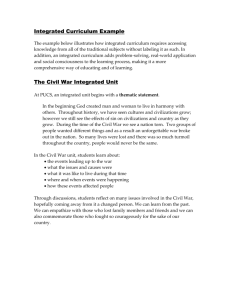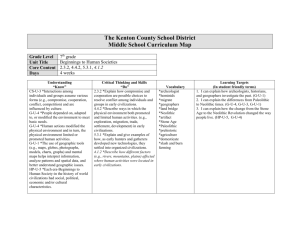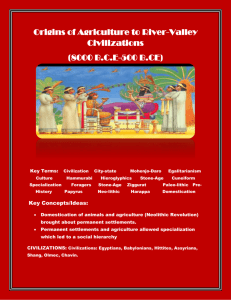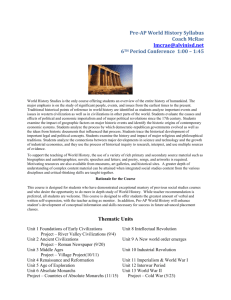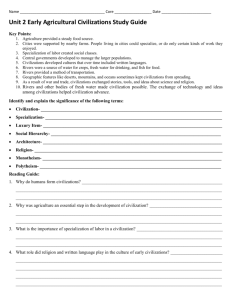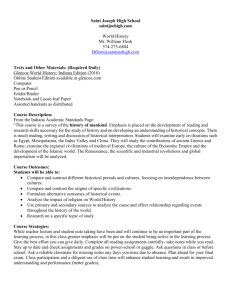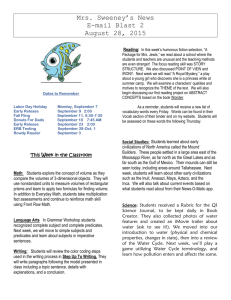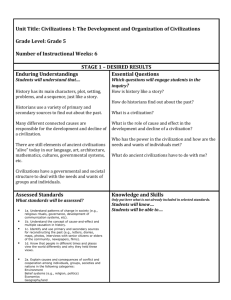Unit 5: Post-Classical Civilizations
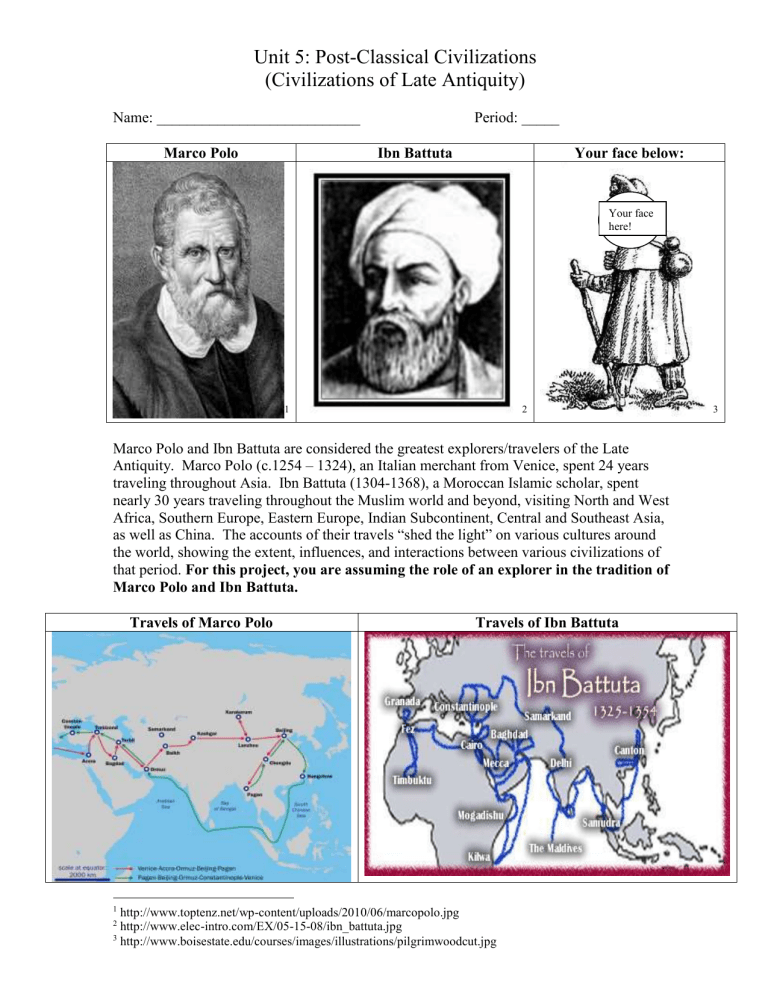
Unit 5: Post-Classical Civilizations
(Civilizations of Late Antiquity)
Name: ___________________________ Period: _____
Marco Polo Ibn Battuta Your face below:
Your face here!
1 2
Marco Polo and Ibn Battuta are considered the greatest explorers/travelers of the Late
Antiquity. Marco Polo (c.1254 – 1324), an Italian merchant from Venice, spent 24 years traveling throughout Asia. Ibn Battuta (1304-1368), a Moroccan Islamic scholar, spent nearly 30 years traveling throughout the Muslim world and beyond, visiting North and West
Africa, Southern Europe, Eastern Europe, Indian Subcontinent, Central and Southeast Asia, as well as China. The accounts of their travels “shed the light” on various cultures around the world, showing the extent, influences, and interactions between various civilizations of that period. For this project, you are assuming the role of an explorer in the tradition of
Marco Polo and Ibn Battuta.
Travels of Marco Polo Travels of Ibn Battuta
3
1 http://www.toptenz.net/wp-content/uploads/2010/06/marcopolo.jpg
2 http://www.elec-intro.com/EX/05-15-08/ibn_battuta.jpg
3 http://www.boisestate.edu/courses/images/illustrations/pilgrimwoodcut.jpg
ROLE:
You are a traveler during the Late Antiquity period (post – Western Roman Empire). You will observe the civilizations you journey through and create a journal that will ensure your status as scholar back home.
TASK:
Your task is to keep a travel journal as you travel throughout the Islamic, Byzantine, and
Western European post-classical civilizations. Your travel journal will record your impressions of the civilizations and how they interact with and influence each other.
AUDIENCE:
The target audience is the ruler and noble families of your home country. You hope to impress them with the breadth of your observations during your travels. You will present your journal as a gift to your ruler.
SITUATION:
You will start your journaling in your home civilization (you will pick one country/part of the Islamic, Byzantine, or Western European civilizations to be your home). You will then
“travel” through the other two. You must pick actual and specific places to visit. For example, you can visit Venice, but you cannot visit “Western Europe.”
You will observe the unique qualities of the cultures you visit, but look closely for commonalities
You should describe interesting/peculiar features of civilizations you visit and how different or similar those features are to the ones in your home country.
You should note any obstacles you encounter, such as armed conflicts, discrimination, bandits, etc.
SPECIFIC DETAILS:
Your journal must contain 10 entries. The entries may include illustrations, drawings, maps, and other visual artifacts.
Entries must reflect the cultural interactions of the civilizations (think about technology, art, literature, weaponry, languages, etc.)
Every entry must include a reflection on how the culture you observe was influencing or was influenced by other civilizations (basically provide a link between cultures).
QUESTIONS TO CONSIDER: (each journal entry should address several, but not all of the questions below)
In what ways do you see aspects of your civilization in the cultures you observed?
In what ways have other civilizations rejected parts of your culture?
Do you see any evidence of influences of ancient civilizations? If so, what are they?
How were you as a traveler treated in the various civilizations? What specific characteristics made your journey easier? Harder?
What are positive aspects of the cultural interactions? Negative aspects?
Which civilization seemed to gain the most from the others? Which one seemed to give the most?
What type of interaction/exchange between various civilizations did you observe?
(war, trade, missionaries, etc.)
DUE DATE: _________________
Journal Entries:
Unit 5: Civilizations of Late Antiquity
Grading Rubric - Unit Project: A Travel Journal
Categories: Possible
Points:
Authentic, informative, and engaging
First journal entry – information about you and your cultural origin
Entries include specific examples of places, cultural practices, etc.
Cultures mentioned in your journal include territories within the Byzantine, Muslim, and
Western European regions
Each journal entry address at least several
“questions to consider”
The last journal entry summarizes differences and similarities and the nature of exchanges among various societies visited by you.
0-30
Format:
There are total of 10 entries in your journal
Journal entries vary in their type (written descriptions, hand-drawn maps, portraits, artifacts, pictures, etc.)
The journal has an appropriate cover page
0-15
Important Details:
Journal entries are neatly hand-written
Journal entries do not contain an excessive number of grammar/spelling/sentence structure mistakes
Journal entries contain critical thinking reflections that deal with cultural interactions/exchanges
Journal is submitted on time (grading rubric included)
Total:
0-5
50
Explanation of final grade:
Points
Earned:
